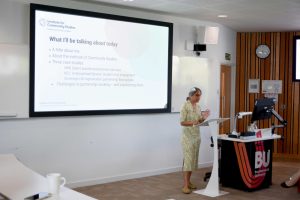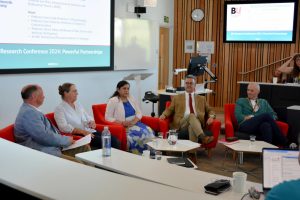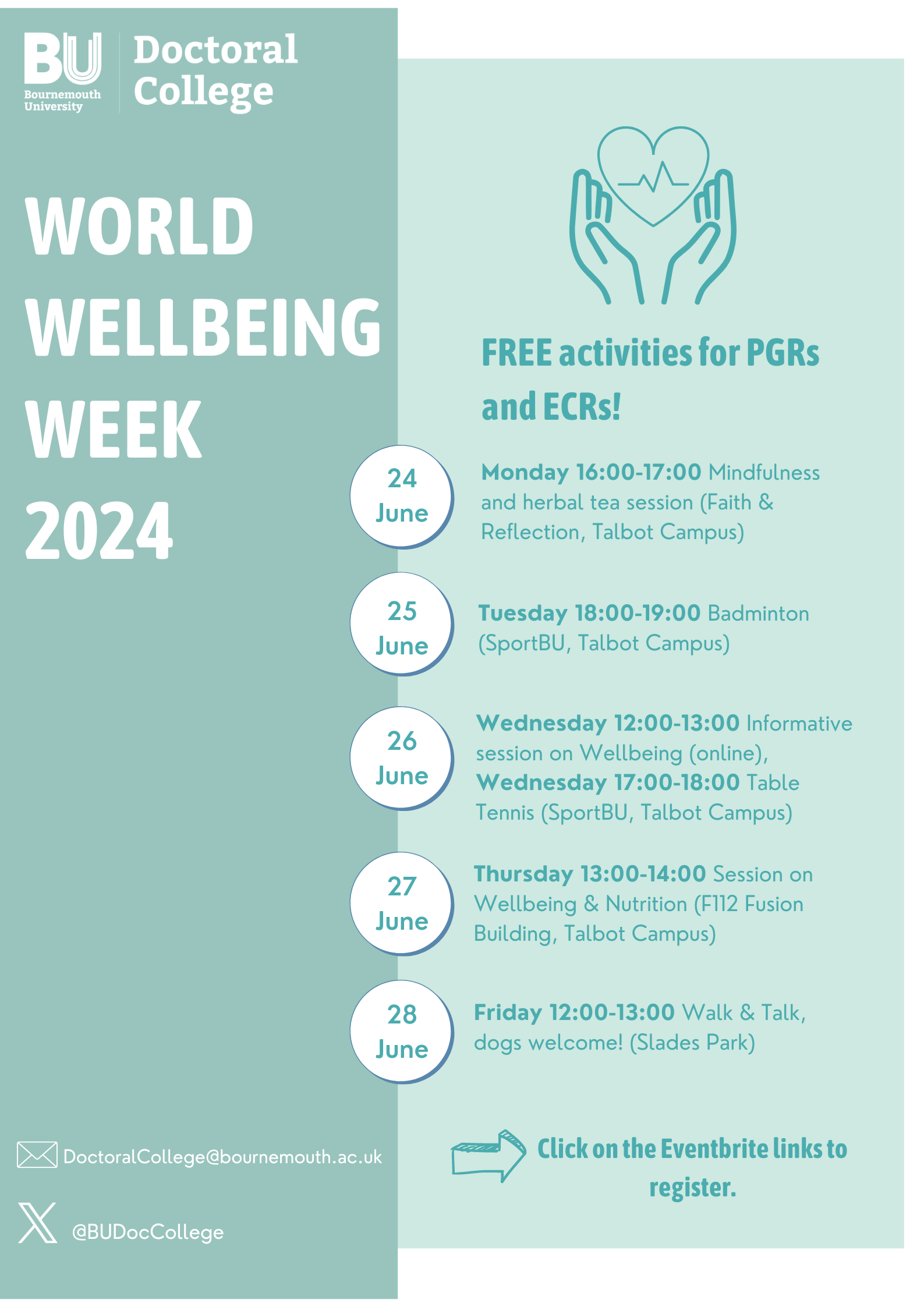
BU Research Centre CSSRC is celebrating its interdisciplinary and intersectoral research around sustainable food on Wednesday 26th June 2024, 4.45-7.00pm.
The Centre for Sustainable & Socially Responsible Consumption (CSSRC) invites you to attend its research event on Wednesday 26th June 2024 to celebrate its interdisciplinary and intersectoral research around sustainable food. After a welcome refreshment this interesting and informative event will comprise of three topical presentation sessions, each lead by a member of CSSRC, as outlined below. Opportunity for discussions and networking over drinks and nibbles after the talks will round off the event.
Session 1: FoodMAPP: Local food supply communicated through a transactional searchable MAP based APPlication
FoodMAPP is a European funded research project that is developing a searchable map-based platform that will enable consumers to search and buy food products directly from local suppliers. Currently within Europe food is transported, on average, 171km from farm to fork. 26 per cent of global carbon emissions come from food and large volumes of food are wasted. The FoodMAPP project aims to address these challenges by enabling consumers to identify and purchase local sources of food in real time to shorten supply chains and reduce food waste, while also providing additional sustainable income to food producers and providers. The project, led by Professor of Consumer Behaviour Jeff Bray, consists of a consortium of European partners, comprising academic partners in Croatia, Hungary, Spain and Belgium and industry partners in France & Austria. In this session Professor Bray will introduce the project and discuss current insights from it.
Session 2: Assessing the impact of food prices on consumption and health
Professor of Economics Tim Lloyd will present this session and introduce this Defra funded project. The overall aim of this project is to develop user-friendly software, underpinned by theory and modelling that will provide Defra with the capacity to assess the potential impacts of external and internal shocks and the outcome of potential policy options, not just on prices but on food consumption more generally, including the health impacts across socio-economic groups, while addressing the resilience of the UK food chain and environmental challenges. The project has Defra Funding for two years and is a collaboration with the University of Exeter, that develops previous work on food price modelling in relation to Brexit that formed the basis of an Impact Case submitted to UoA17 (Business and Management) in REF2021. The current project started in December 2023 and is in its early phase of development. The BU team comprises Tim Lloyd (Professor of Economics) and Adam Witt (ECR) from the Department of Accounting Finance and Economics in BUBS. It is envisioned that the output of the project will augment the government’s analytical capacity in the politically sensitive area of food prices and form an Impact Case Study for REF2029.
Session 3: An exploration of alternative food network practices
The landscape of food systems is evolving, with alternative food networks (AFNs) gaining prominence. AFNs encompass decentralised and locally rooted system that seek to establish direct connections between producers and consumers, often bypassing conventional supply chains e.g. farmers’ markets, community-supported agriculture (CSA), and food cooperatives. As consumer preferences shift towards locally sourced and sustainable food options, it is essential to assess the challenges and opportunities that arise in the context of AFNs. Through exploring AFNs and SFSCs, this project seeks to understand their potential contributions to sustainability, resilience, and community well-being. In this session Dr Anthony Ezenwa will present his BU QR-funded research that explores the nuances of Alternative Food Networks (AFNs) and Short Food Supply Chains (SFSCs), using Dorset County, England as a comprehensive case study. Dr Ezenwa will highlight the various typologies and meanings associated with these concepts and discuss how the social and institutional perspectives surrounding the challenges and opportunities within AFNs and SFSCs practices in the region, shedding light on their intricate links.
Provisional Timetable:
4.45-5.00pm – Welcome refreshments
5.00-6.15pm – Presentation sessions
6.15-7.00pm – Discussion, networking and refreshments
This is a free event, but you must register to attend via Eventbrite: A Celebration of Sustainable Food Related Research Tickets, Wed 26 Jun 2024 at 16:45 | Eventbrite






 UKRIO has announced details of a forthcoming Free Webinar “Science communication and research communication” Wednesday 26 June 2024 10:00 – 11:oo.
UKRIO has announced details of a forthcoming Free Webinar “Science communication and research communication” Wednesday 26 June 2024 10:00 – 11:oo. 
 There’s still time to book your place for the
There’s still time to book your place for the 



 This world-class European supercomputing eco-system has an enhanced share of the Horizon funded portion, worth £770 million from 2021-2027. Membership means UK’s brightest minds can now work in partnership with European colleagues, and access EuroHPC Horizon Europe-funded projects.
This world-class European supercomputing eco-system has an enhanced share of the Horizon funded portion, worth £770 million from 2021-2027. Membership means UK’s brightest minds can now work in partnership with European colleagues, and access EuroHPC Horizon Europe-funded projects.











 From Sustainable Research to Sustainable Research Lives: Reflections from the SPROUT Network Event
From Sustainable Research to Sustainable Research Lives: Reflections from the SPROUT Network Event REF Code of Practice consultation is open!
REF Code of Practice consultation is open! BU Leads AI-Driven Work Package in EU Horizon SUSHEAS Project
BU Leads AI-Driven Work Package in EU Horizon SUSHEAS Project ECR Funding Open Call: Research Culture & Community Grant – Apply now
ECR Funding Open Call: Research Culture & Community Grant – Apply now ECR Funding Open Call: Research Culture & Community Grant – Application Deadline Friday 12 December
ECR Funding Open Call: Research Culture & Community Grant – Application Deadline Friday 12 December MSCA Postdoctoral Fellowships 2025 Call
MSCA Postdoctoral Fellowships 2025 Call ERC Advanced Grant 2025 Webinar
ERC Advanced Grant 2025 Webinar Update on UKRO services
Update on UKRO services European research project exploring use of ‘virtual twins’ to better manage metabolic associated fatty liver disease
European research project exploring use of ‘virtual twins’ to better manage metabolic associated fatty liver disease